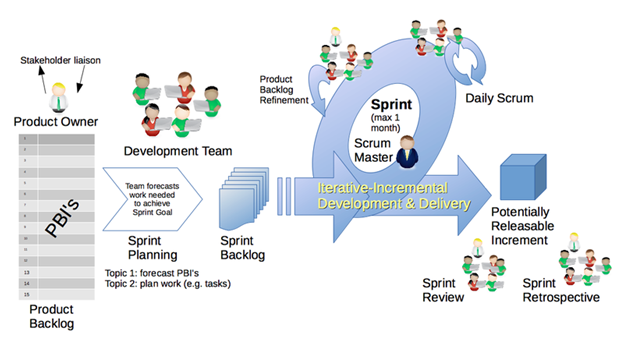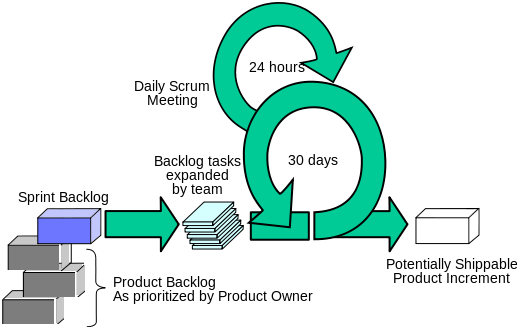The importance of the daily scrum
Agile teams are encouraged to meet for the daily scrum, although plenty of business owners and product managers are uncertain as to whether or not they should attend. Here’s what you need to know in order to make an informed choice.

What is the daily scrum?
Designed to promote self-organisation within a project, the daily scrum takes the form of a stand-up meeting between all members of the team, with the aim of helping the development team to manage their workload effectively. A sprint goal is agreed, progress is tracked, and changes or problems are discussed. Ideally, the daily scrum should take place in the morning and should last no longer than 15 minutes.
Scrum certainly seems to be popular with those who use it. According to a recent article in Forbes, out of almost 4,500 people surveyed, 95 per cent confirmed their ongoing use of Scrum into the future.
Should you attend?
The general advice to product managers is to aim to attend the daily scrum around twice a week, just to check in to see how things are going. It’s important not to take charge of the meeting or attempt to steer it in a new direction, however. If you’re not sure about how the scrum actually works, it’s well worth considering undertaking some training in the concept. https://www.althris.com/courses/scrum-master/ A Scrum Master Training Dublin company offers courses specifically aimed at product managers to improve their understanding of the concept.

Give the Scrum Master freedom
It’s important to understand that the Scrum Master is in overall charge of the daily scrum, so the product manager’s job is not to interfere with this hierarchy. It’s possible that you may have some issues with the way that the scrum is progressing or with elements of the project, but the daily scrum is not the time or place to voice any concerns. Allow the Scrum Master the time and space to undertake their role as they see fit, and save your worries for later.
You need to be very clear that your role is not to manage the team or their processes, but to manage the product. When there is no easily identifiable Scrum Master available, it may be helpful to hire a qualified person for the role or to train a suitable candidate in-house.


